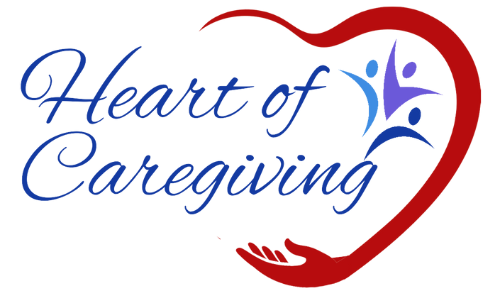May is Older Americans Month, and the theme is Powered by Connection, recognizing the impact of meaningful relationships and social connections on our well-being. In the intricate tapestry of caregiving, where responsibilities often intertwine with emotional complexities, meaningful relationships, and robust support systems emerge as beacons of strength and resilience. Beyond the practical aspects of caregiving, cultivating deep connections lays the foundation for emotional well-being and sustains us through the ebbs and flows of our journey. We can create our Care Community one meaningful relationship at a time and surround ourselves with support.
Inner circle
At the heart of meaningful relationships lies empathy—a profound understanding and recognition of our challenges and vulnerabilities. When we feel seen and understood, whether by family members, friends, or support groups, we feel validated. Validation alleviates the burden of isolation and loneliness. Empathy forms the foundation of genuine connections, creating a safe space for us to express our emotions openly and seek comfort in the company of others who truly comprehend our experiences.
Meaningful relationships in caregiving are not one-sided but characterized by reciprocity—a mutual exchange of care, compassion, and support. While caregivers devote themselves wholeheartedly to the well-being of their loved ones, it’s essential for them to receive reciprocal support from their social network. Whether it’s a listening ear, helping hand with caregiving tasks, or simply a heartfelt expression of gratitude, these reciprocal gestures validate our efforts and reinforce our sense of worthiness and belonging.
Family
Family dynamics play a pivotal role in our caregiving journey, influencing the quality of relationships and the distribution of caregiving responsibilities. Open communication, mutual respect, and shared decision-making are essential ingredients for fostering harmonious familial relationships amidst the challenges of caregiving. By nurturing an atmosphere of collaboration and understanding within the family unit, caregivers can cultivate a support network that empowers them to navigate challenges collectively and celebrate milestones together.
Partner
When caring for an aging parent, having the support of a partner can make a significant difference in managing the responsibilities and challenges of caregiving. Open and honest communication is key to navigating the complexities of caregiving together. Regularly check in with each other to discuss concerns, share updates, and make decisions collaboratively. Sharing your needs and working as a team strengthens your partnership and enhances your ability to provide effective care for your aging parent. Caregiving can be emotionally taxing, so having a partner who offers empathy, understanding, and encouragement is invaluable. Simply having someone to listen to your feelings, frustrations, and concerns can provide immense relief.
Your partner may be able to assist with caregiving tasks, such as meal preparation, household chores, medication management, and transportation to appointments. Dividing responsibilities allows for a more manageable workload and prevents burnout. Can your partner provide respite care by temporarily taking over caregiving duties, allowing you to take breaks, engage in self-care activities, or attend to personal needs? This respite time is essential for recharging and maintaining your well-being.
Your partner can assist in researching caregiving resources, support services, and community programs available to you and your loved one. They can also help with long-term care planning, financial planning, and exploring options for future care arrangements.
Spending quality time together as a couple, separate from caregiving responsibilities, is crucial for maintaining a strong relationship. Your partner can plan activities or outings to provide moments of relaxation and enjoyment amidst the demands of caregiving. Flexibility and understanding regarding changes in schedules, disruptions to routines, and the unpredictability of caregiving are appreciated. Being supportive and adaptable helps navigate the challenges of caregiving with resilience and unity as a couple.
What if the person you are caring for is your partner?
Open communication
Open and honest communication is crucial. Share your thoughts, concerns, and needs openly, and encourage your partner to do the same. Regularly check in to discuss how you’re both coping with the challenges of caregiving and any adjustments that may be needed.
Realistic Expectations
Establish realistic expectations for yourself and your partner regarding caregiving responsibilities and their potential impact on your relationship. Acknowledge that caregiving can be demanding and unpredictable, and talk about how you can support each other while navigating these challenges together.
Quality Time Together
Quality moments together as a couple, separate from caregiving duties, are essential. Schedule regular date nights, outings, or activities that you both enjoy to reconnect and nurture your bond. Even simple gestures, such as sharing a meal or watching a movie together, can strengthen your connection and provide opportunities for relaxation and enjoyment. Prioritize intimacy and emotional connection in your relationship by nurturing physical affection, intimacy, and emotional closeness. Make time for intimate moments together, such as cuddling, holding hands, or engaging in meaningful conversations, to strengthen your emotional bond and reinforce your connection as partners.
Express Appreciation, Gratitude and compassion
Show appreciation and gratitude for your partner’s support, understanding, and contributions to the caregiving journey. Expressing gratitude for their efforts through verbal acknowledgment, acts of kindness, or small gestures of appreciation reinforces their value and strengthens your relationship. When you cultivate empathy and compassion for each other’s experiences and emotions, you navigate the challenges of caregiving together. Be patient, understanding, and supportive of each other’s needs, and offer compassion and reassurance during difficult times. By fostering a supportive and compassionate environment, you can navigate the caregiving journey with love, resilience, and mutual respect, strengthening your relationship.
Set and maintain boundaries
Establish clear boundaries between your caregiving role and your relationship with your partner to prevent caregiver burnout and maintain a healthy balance. Set aside dedicated time for self-care, relaxation, and activities that recharge you individually and as a couple.
Seek support together
Explore support resources and services available to caregivers, such as support groups, counseling, or respite care programs. Encourage your partner to participate in these support networks with you, as they can provide valuable guidance, validation, and a sense of community for both of you.
Broader Community
Beyond familial bonds, the broader community serves as a vital source of support and encouragement. Support groups, online forums, and local organizations provide valuable platforms for connecting with others who share similar experiences and exchanging insights, resources, and coping strategies. These communities offer a sense of solidarity and belonging, reminding us that we are not alone in our journey and that support is always within reach.
In addition to emotional support, practical assistance, and respite care are indispensable components of an effective caregiving support system. Friends, neighbors, and community organizations can offer tangible help with caregiving tasks, errands, or household chores, providing much-needed relief and the opportunity to recharge and replenish our energy reserves.
Professional support services
Furthermore, professional support services, such as home health aides, respite care programs, and counseling services, are crucial in augmenting support networks and addressing diverse needs. These specialized services offer tailored interventions and resources to help us navigate complex challenges, manage stress, and maintain physical and mental well-being.
Conclusion
In conclusion, meaningful relationships and robust support systems are indispensable pillars of well-being in caregiving. By fostering empathy, reciprocity, and collaboration within our social networks, we can cultivate a support system that sustains us through the highs and lows of our journey. Whether through familial bonds, community connections, or professional support services, we can thrive in environments where we feel understood, valued, and supported. As you recognize the profound impact of meaningful relationships and support, continue nurturing and strengthening these vital connections, ensuring you receive the compassion, validation, and assistance you need to flourish in your caregiving role. #PoweredByConnection
For more on creating your Care Community the importance of connection and other solutions for caregivers’ common mistakes, check out 21 Mistakes Caregivers Make & How to Avoid Them: Solutions and Strategies to Reduce Stress and Increase Happiness, available on Amazon! Are you looking for a dynamic speaker on caregiver empowerment? Go to my speaking page, and let’s connect!
The advice offered is for general information only; please consult your healthcare team, legal, or financial advisors for guidance.

